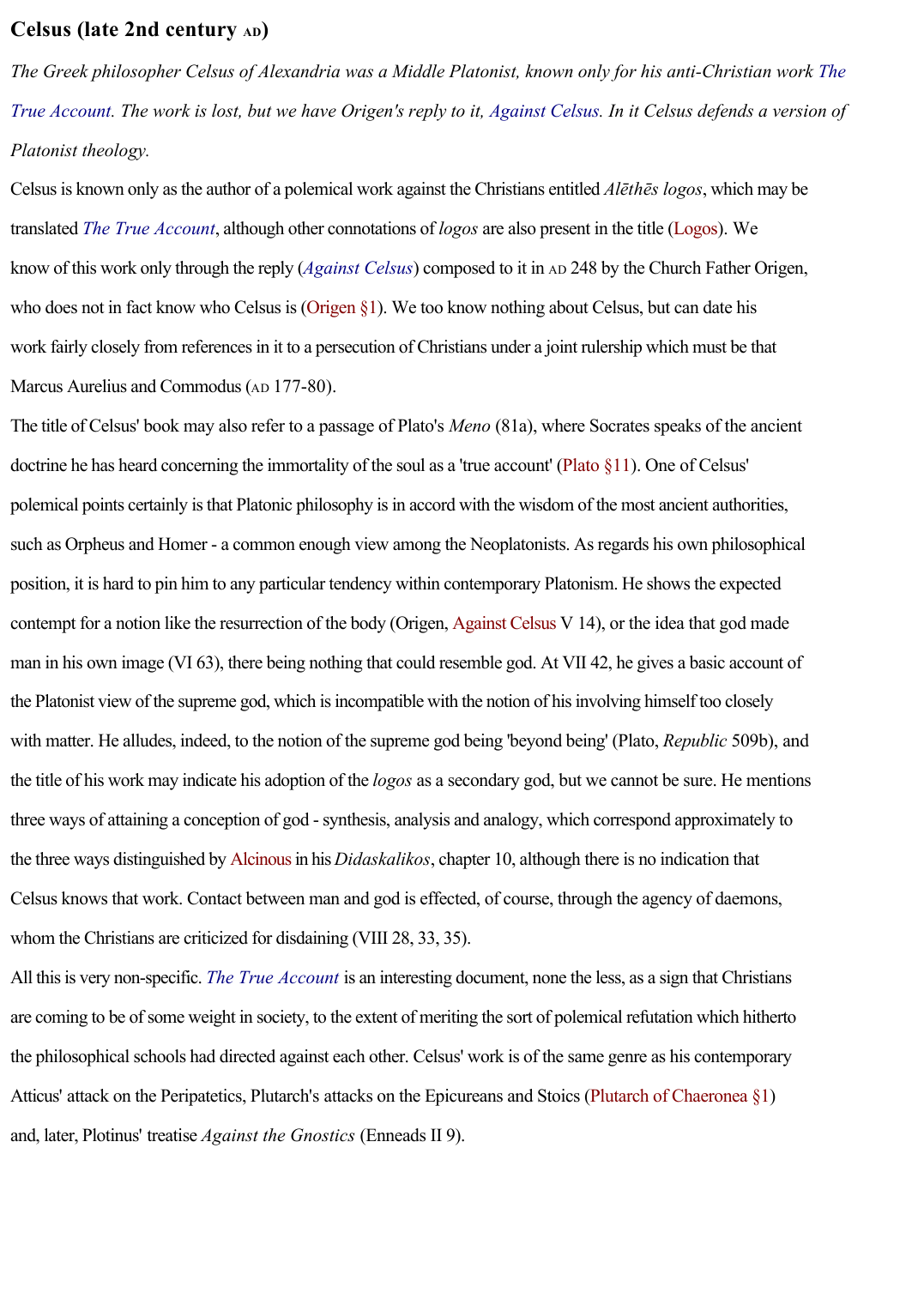Celsus
Publié le 16/05/2020
Extrait du document
«
Celsus (late 2nd century AD)
The Greek philosopher Celsus of Alexandria was a Middle Platonist, known only for his anti-Christian work The
True Account .
The work is lost, but we have Origen 's reply to it, Against Celsus .
In it Celsus defends a version of
Platonist theology.
Celsus is known only as the author of a polemical work against the Christians entitled Alēth ēs logos , which may be
translated The True Account , although other connotations of logos are also present in the title ( Logos ).
We
know of this work only through the reply ( Against Celsus ) composed to it in AD 248 by the Church Father Origen,
who does not in fact know who Celsus is ( Origen §1 ).
We too know nothing about Celsus, but can date his
work fairly closely from references in it to a persecution of Christians under a joint rulership which must be that
Marcus Aurelius and Commodus ( AD 177-80).
The title of Celsus' book may also refer to a passage of Plato 's Meno (81a), where Socrates speaks of the ancient
doctrine he has heard concerning the immortality of the soul as a 'true account' (Plato §11 ).
One of Celsus'
polemical points certainly is that Platonic philosophy is in accord with the wisdom of the most ancient authorities,
such as Orpheus and Homer - a common enough view among the Neoplatonists.
As regards his own philosophical
position, it is hard to pin him to any particular tendency within contemporary Platonism.
He shows the expected
contempt for a notion like the resurrection of the body (Origen, Against Celsus V 14), or the idea that god made
man in his own image (VI 63), there being nothing that could resemble god.
At VII 42, he gives a basic account of
the Platonist view of the supreme god, which is incompatible with the notion of his involving himself too closely
with matter.
He alludes, indeed, to the notion of the supreme god being 'beyond being' (Plato, Republic 509b), and
the title of his work may indicate his adoption of the logos as a secondary god, but we cannot be sure.
He mentions
three ways of attaining a conception of god - synthesis, analysis and analogy, which correspond approximately to
the three ways distinguished by Alcinous in his Didaskalikos , chapter 10, although there is no indication that
Celsus knows that work.
Contact between man and god is effected, of course, through the agency of daemons,
whom the Christians are criticized for disdaining (VIII 28, 33, 35).
All this is very non-specific.
The True Account is an interesting document, none the less, as a sign that Christians
are coming to be of some weight in society, to the extent of meriting the sort of polemical refutation which hitherto
the philosophical schools had directed against each other.
Celsus' work is of the same genre as his contemporary
Atticus ' attack on the Peripatetics, Plutarch 's attacks on the Epicureans and Stoics ( Plutarch of Chaeronea §1 )
and, later, Plotinus ' treatise Against the Gnostics (Enneads II 9)..
»
↓↓↓ APERÇU DU DOCUMENT ↓↓↓

































